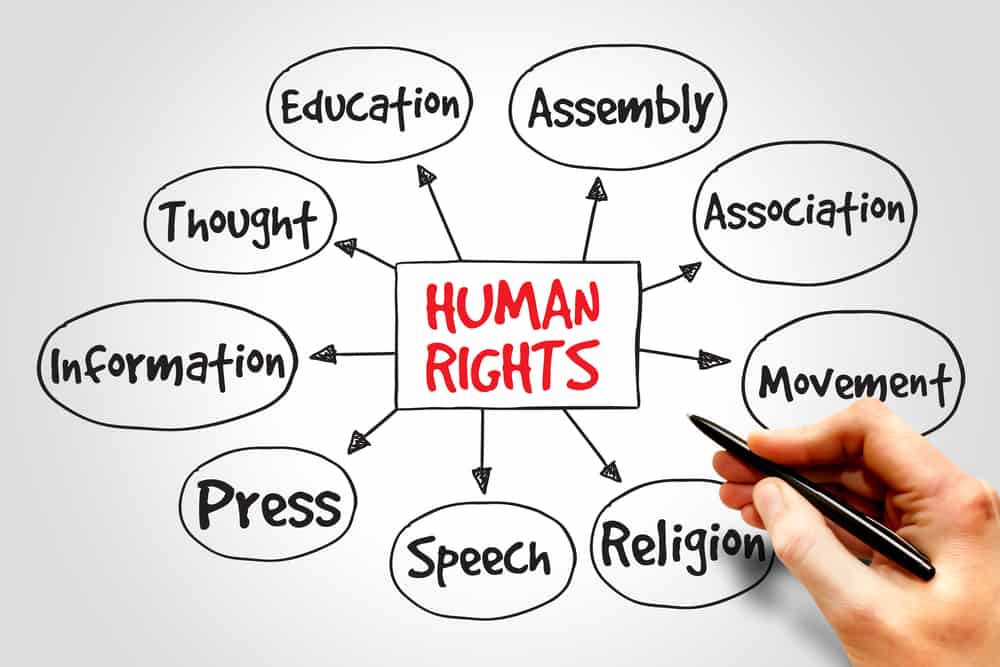Discrimination lawyers are the champions of fairness, standing up for individuals and groups who have faced unfair treatment based on protected characteristics. These legal professionals navigate complex legal landscapes, seeking justice and equality for those who have been discriminated against.
From employment and housing to education and public accommodations, discrimination lawyers advocate for their clients’ rights, ensuring that they receive the protection they deserve under the law. They meticulously gather evidence, build strong legal arguments, and negotiate settlements or pursue litigation to achieve the best possible outcomes for their clients.
Proving Discrimination
To successfully prove a discrimination claim, you must present compelling evidence that demonstrates the discriminatory nature of the actions taken against you. This evidence can take various forms, including direct and circumstantial evidence.
Types of Evidence, Discrimination lawyer
The evidence needed to prove discrimination can be categorized into two main types:
- Direct Evidence: This type of evidence directly establishes discriminatory intent. It includes statements or actions that explicitly reveal prejudice or bias against a protected characteristic. For example, a written memo stating that a particular group should not be hired or an employer’s direct admission of discriminatory intent.
- Circumstantial Evidence: This type of evidence doesn’t directly prove discriminatory intent but suggests it through a pattern of actions or circumstances. It can include statistical data, comparisons of treatment, and other circumstantial factors that point to discriminatory practices. For example, a company’s hiring records showing a consistent pattern of favoring certain groups over others, or a lack of promotion opportunities for individuals from specific protected groups.
Disparate Treatment
Disparate treatment occurs when an individual is treated differently than others because of their protected characteristic. To establish disparate treatment, you need to show that:
- You belong to a protected group.
- You were treated differently than similarly situated individuals who are not members of your protected group.
- The difference in treatment was based on your protected characteristic.
Disparate Impact
Disparate impact occurs when a seemingly neutral policy or practice has a disproportionate negative impact on a particular protected group. To prove disparate impact, you need to show that:
- A neutral policy or practice exists.
- The policy or practice has a significantly adverse impact on a protected group.
- There is no legitimate, non-discriminatory reason for the policy or practice.
Role of a Discrimination Lawyer
A discrimination lawyer plays a crucial role in gathering and presenting evidence to support your claim. They can help you:
- Identify the relevant evidence needed to prove your case.
- Gather evidence from various sources, including documents, witness testimonies, and statistical data.
- Analyze the evidence to determine its strength and relevance.
- Present the evidence in a clear and compelling manner to the court or other decision-making body.
The Impact of Discrimination

Discrimination has a profound and lasting impact on individuals, families, and communities, leading to a range of societal and economic consequences. Its effects extend far beyond individual experiences, contributing to broader inequalities and injustices within society.
The Societal and Economic Costs of Discrimination
A graphic illustrating the societal and economic costs of discrimination would show the interconnectedness of various aspects, highlighting the ripple effect it has on individuals, communities, and the overall economy.
- Reduced Productivity: Discrimination limits access to opportunities and resources, hindering individuals’ potential and reducing overall productivity.
- Increased Poverty and Inequality: Discrimination perpetuates existing inequalities and creates barriers to economic advancement, contributing to poverty and income disparities.
- Higher Healthcare Costs: Discrimination can lead to stress, anxiety, and mental health issues, increasing healthcare costs for individuals and society as a whole.
- Reduced Innovation and Economic Growth: By excluding talented individuals from participation in the workforce and entrepreneurship, discrimination hinders innovation and economic growth.
- Social unrest and conflict: Discrimination fuels resentment, mistrust, and social unrest, leading to instability and conflict within communities.
The Impact on Individuals, Families, and Communities
Discrimination inflicts significant harm on individuals, families, and communities, leading to various negative consequences.
Individuals
- Mental Health Issues: Discrimination can lead to feelings of inferiority, isolation, and stress, contributing to anxiety, depression, and other mental health issues.
- Reduced Life Opportunities: Discrimination limits access to education, employment, housing, and healthcare, hindering individuals’ ability to achieve their full potential.
- Loss of Self-Esteem and Confidence: Being discriminated against can erode self-esteem and confidence, leading to feelings of powerlessness and hopelessness.
Families
- Financial Strain: Discrimination can lead to reduced income and increased expenses, placing financial strain on families.
- Intergenerational Poverty: Discrimination can perpetuate poverty across generations, limiting opportunities for future generations.
- Family Conflict and Stress: Discrimination can lead to family conflict and stress, as individuals struggle to cope with the emotional and practical consequences.
Communities
- Social Isolation and Segregation: Discrimination can lead to social isolation and segregation, creating divisions and hindering community cohesion.
- Reduced Civic Engagement: Discrimination can discourage individuals from participating in civic life, weakening community institutions and governance.
- Increased Crime and Violence: Discrimination can contribute to crime and violence, as marginalized communities experience frustration and despair.
Perpetuating Inequality and Injustice
Discrimination is a systemic issue that perpetuates inequality and injustice, creating a cycle of disadvantage and exclusion.
- Reinforcing Stereotypes: Discrimination reinforces negative stereotypes, leading to prejudice and discrimination against entire groups of people.
- Creating Barriers to Opportunity: Discrimination creates barriers to education, employment, housing, and healthcare, limiting access to opportunities and resources for marginalized groups.
- Exacerbating Social Divisions: Discrimination exacerbates social divisions, creating a climate of mistrust and hostility between different groups.
Final Conclusion: Discrimination Lawyer

In a world where discrimination still exists, discrimination lawyers play a vital role in promoting fairness and equality. They empower individuals to fight for their rights and ensure that everyone has an equal chance to thrive. By understanding the legal framework and advocating for their clients’ interests, discrimination lawyers contribute to a more just and equitable society.
Discrimination lawyers are crucial in fighting for equality and justice. They often work with institutions like the regents university of california , where they can advocate for policies that promote diversity and inclusion. These lawyers play a vital role in ensuring that everyone has equal opportunities and access to resources, regardless of their background.